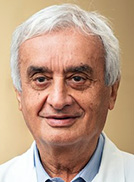Adjuvant avelumab does not significantly improve disease-free survival in high-risk TNBC patients
Given the poor prognosis for patients with triple negative breast cancer, there is an urgent need for improved and more effective treatment options. The A-BRAVE trial investigated the efficacy of avelumab, an anti PD-L1 antibody in this patient population. At the time of study design, the only standard systemic therapy was chemotherapy, and no effective therapy was available for patients with invasive residual disease after neoadjuvant therapy. The 3-year results of A-BRAVE, focusing on overall and disease-free survival, were reported at ASCO 2024.
There is currently an unmet treatment need for patients with early triple negative breast cancer (TNBC) due to the poor prognosis and outcomes. TNBC appears to be particularly sensitive to immune checkpoint inhibitors and this is thought to be due to TNBC being the most immunogenic breast cancer subtype. The A-BRAVE trial aimed to assess the efficacy of the anti PD-L1 antibody avelumab as adjuvant treatment for patients with TNBC who had a high risk of relapse.
Methods
This phase III, multicentric, randomised, adjuvant study enrolled high-risk TNBC patients who had completed locoregional and systemic treatment with curative intent. Patients were included if they had first been operated on with pT2N1, pT3-4 N0-3 or pN2-3 any T stage disease followed by adjuvant chemotherapy (Stratum A; adjuvant) or had received neoadjuvant chemotherapy (and following an amendment further rounds of adjuvant chemotherapy) and had residual invasive carcinoma in the breast and/or axillary lymph nodes (Stratum B; post-neoadjuvant). Patients were randomised 1:1 to receive avelumab (10 mg/kg I.V. q2w) or observation for one year. Primary endpoints were disease-free survival (DFS) in the total population and stratum B.
Results
A total of 477 patients from 64 Italian and 6 UK centres were enrolled in this study and were randomly assigned. Eleven patients withdrew consent directly following randomisation (3 avelumab; 8 control). 378 patients were randomised to stratum A (83%), and 99 of these patients (57 avelumab; 42 control) went on to receive further chemotherapy following surgery prior to trial enrolment. At a median follow-up of 52.1 months, in the total population, the 3-year DFS in the avelumab arm was 68.3% (95% CI; 61.9-73.8) vs. 63.2% (56.5-69.0) in the control group (HR[95% CI] 0.81[0.61-1.09], p= 0.172). In the stratum B arm, 3-year DFS for patients treated with avelumab was 66.9% (59.8-73.1) vs. 60.7% (53.3-67.3) in the control arm (HR[95% CI] 0.80[0.58-1.10], p= 0.17). The 3-year overall survival rates in the total population were 84.8% (79.5-88.8) vs. 76.3% (70.1-81.3) in the avelumab vs. control arm, respectively (HR[95% CI] 0.66[0.45-0.97], p= 0.035). Additional post hoc distant disease-free survival (DDFS) analysis revealed a DDFS of 75.4% (69.3-80.4) vs. 67.9% (61.4-73.5), HR[95% CI] 0.70[0.50-0.96], p= 0.0277, avelumab vs. control, respectively.
Conclusions
In conclusion, one-year adjuvant treatment with avelumab vs. control did not significantly improve DFS in a population of high-risk TNBC patients. However, the secondary endpoint of overall survival was significantly improved. Future analyses will report relapse-free survival and distant metastasis-free survival.
Reference
Conte P, et al. A-BRAVE trial: A phase III randomized trial with avelumab in early triple-negative breast cancer with residual disease after neoadjuvant chemotherapy or at high risk after primary surgery and adjuvant chemotherapy. Presented at ASCO 2024; Abstract LBA500.

